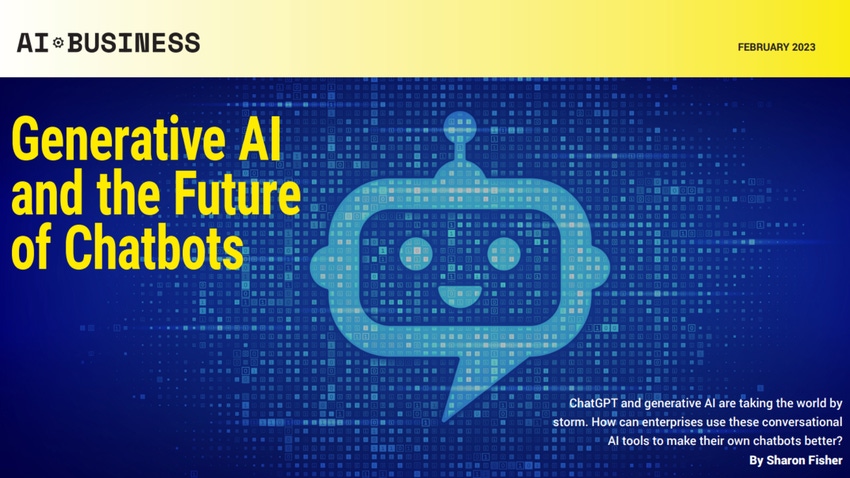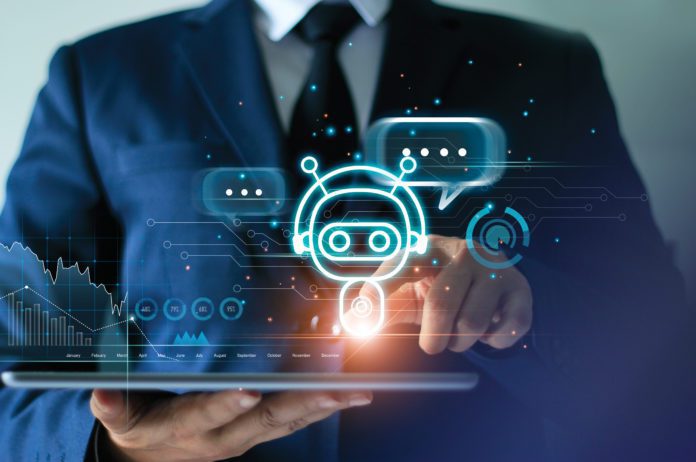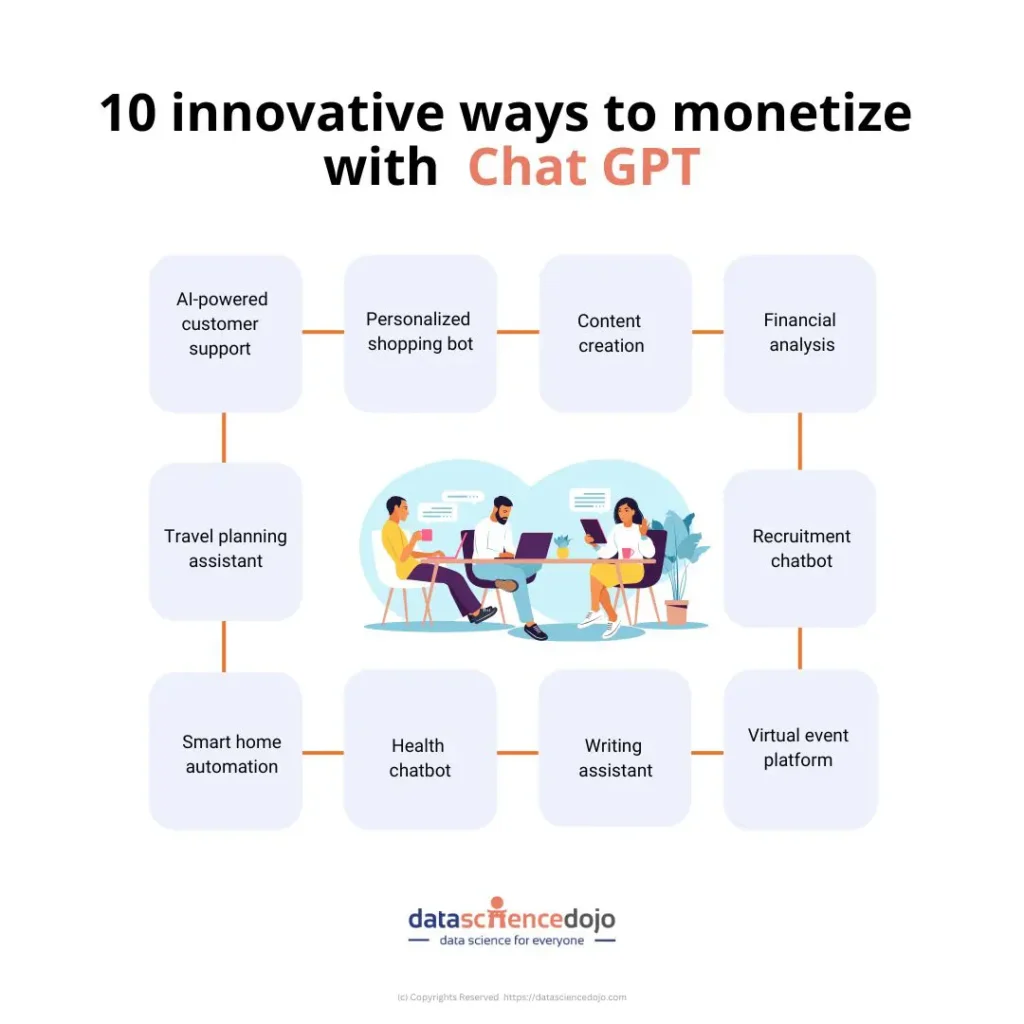Introduction: The Fusion of AI and Business
In the digital realm, a major trend we’ve seen in recent years is the increased incorporation of Artificial Intelligence (AI) into various aspects of business. I’m sure many of you are already familiar with Siri, Alexa, or even the Google Assistant. What you might not know is, these examples are just the tip of the iceberg. The realm of Artificial Intelligence in business is vast and continually evolving. Even more intriguing is the potential of AI chatbots to revolutionize business operations and revenue generation.
The Rise of AI in the Business World
As technology continues to leap forward, more and more businesses are transforming their methods to keep up with the times. AI technology has played a key role in this transformation, with systems capable of data analysis and making complex decisions. A notable manifestation of AI in business is the rise of chatbots – these AI-driven entities that mimic human conversation and guide customers interactively.
Identifying the Potential of AI in Transforming Business Operations
There’s no denying that AI, particularly chatbots, has enormous potential in refining business operations and creating unparalleled user experiences. One look at the trends suggest companies are actively exploring ways to monetize these chatbots. Businesses are harnessing the power of AI to improve customer service, sales, and marketing and creating opportunities for significant revenue generation.
What’s exciting is that we are just scraping the surface of what AI can offer to the business world. The future promises even more seamless integration and innovative use-cases of chatbots in different business sectors. By keeping an open mind and an eagerness to adapt, businesses can leverage this technology to gain a competitive edge and create new paradigms in the process.

This image is property of eu-images.contentstack.com.
Understanding AI Chatbots
Technology has forever changed the way we do business. And now, our approach to customer service and interaction is being revolutionized by AI chatbots. So, whether you’re a seasoned entrepreneur or a newbie to the world of e-commerce, understanding the role of AI in business and its monetizing potential through chatbots is essential.
Defining Chatbots
Chatbots are essentially software used to simulate human conversation. They’re programmed to understand and respond to user inputs – whether that’s answering routine customer service questions, carrying out commands, or offering solutions to queries. But why are these chatterboxes so important? Well, that’s because they bring us to our next significant point – the role of AI in chatbots.
Examining the Role of AI in Chatbots
Chabot’s real game-changer is when infused with Artificial Intelligence. AI with natural language processing capabilities allow chatbots to understand, learn, and react to more nuanced forms of communication, just like a human would. It means chatbots can provide more personalized customer service, enhancing customer experience and, ultimately, boosting sales.
Exploring Different Types of AI Chatbots
From simple command-based bots that respond to specific instructions to more advanced AI bots that learn and adapt from previous conversations, there’s a wide range of AI chatbots businesses can integrate into their operations. Choosing an AI chatbot that suits your business needs can be the key to streamlining operations, improving customer service, and most importantly, increasing sales and saving costs.
So, if you haven’t given thought to leveraging AI chatbots for your business, now’s the time – because they’re not only the present, but undoubtedly, they are the future too.
Remember, in the world of business, staying ahead of the curve is often the key to success.

This image is property of b432460.smushcdn.com.
The Technological Advancements Behind AI Chatbots
As AI continues to impact every sphere of human endeavor, businesses are exploring innovative ways to leverage this technology. One such way is through AI Chatbots. Chatbots, powered by AI, are radically transforming business operations, enhancing consumer engagement, and ultimately leading to monetization. But what drives these AI Chatbots? How do they understand and respond to human languages?
Let’s dive a bit deeper and look into the fascinating technological advancements making this possible.
Natural Language Processing (NLP) in Chatbots
Ever wondered how Chatbots understand human languages? The key lies in a technology called Natural Language Processing (NLP). It’s an AI-driven technology that transforms human language into commands that machines can understand. Through NLP, chatbots can understand, analyze, and respond to text inputs in a human-like manner, creating a smooth and intuitive user experience. This technology is critical for businesses as it helps reduce the communication gap between customers and chatbots.
Machine Learning (ML) for Enhancing Chatbot Interactions
Machine Learning (ML) plays a pivotal role in enhancing chatbot interactions. ML algorithms allow chatbots to learn from previous interactions, identify patterns, and improve future responses. Over time, this leads to improved customer satisfaction as the chatbot can provide more accurate and personalized responses to customer inquiries.
Importance of Deep Learning in AI Chatbots
Beyond NLP and ML, there’s another crucial technology powering Chatbots – Deep Learning. This technology helps chatbots understand the context and intention behind user queries, enabling them to deliver accurate and context-sensitive responses. The result is a smarter, more efficient chatbot that can handle complex queries and improve customer engagement.
By embracing these technological advancements, businesses can customize interactions, increase operational efficiency, and monetize their AI chatbot deployment, thus paving the way for the future of AI in business.
In essence, the future of AI in business lies in how effectively we can leverage NLP, ML, and Deep Learning to enhance the capabilities of AI Chatbots.
Current Business Applications of AI Chatbots
One aspect of AI that has already started redefining the future of business is the use of AI chatbots. Their applications are wide and varied, ranging from customer service to operations and marketing.
AI Chatbots in Customer Service
The first, and often most cited, use of AI chatbots in business is enhancing customer service. With their 24/7 availability, chatbots are always ready to tackle customer queries and complaints. They can handle multiple requests simultaneously without any drop in service quality, something human agents often fall short on. Plus, with the help of machine learning algorithms, these chatbots can learn from each interaction, gradually reducing error rates and improving their customer handling skills.
Increased Efficiency in Operations with AI Chatbots
AI chatbots are also making waves in the operational field. Traditionally, businesses relied on a large workforce to handle operational tasks like order tracking, inventory, finance, etc. However, with evolving AI technology, businesses are now using chatbots to handle these tasks. Chatbots can gather, organize, and analyze large amounts of data within seconds, improving decision-making processes, productivity, and overall efficiency.
Personalized Marketing Advantages with AI Chatbots
Lastly, the future of marketing also lies with AI. Personalized marketing is becoming dominant, and no one does it better than AI chatbots. They can analyze a customer’s browsing habits, interests, and past purchases, and use this data to provide tailored product recommendations. This personal touch not only drives sales but also improves customer loyalty.
So, as we look ahead, the future of AI in businesses is promising, especially with improved chatbots technology. Monetization through chatbots will continue to grow as businesses reap the benefits of increased efficiency, improved customer service, and personalized marketing.
This image is property of i.insider.com.
The Future of AI in Business: Monetizing through Chatbots
Let’s take a sneak-peek into the future of AI in the business world, with a primary emphasis on how chatbots are an instrumental tool for revenue generation. When it comes to leveraging AI, the gains are multi-dimensional, ranging from improved customer engagement, operational cost reduction to sales increase.
Revenue Generation through AI Chatbot Services
AI chatbots are no longer just about automated responses and customer grievance management. They have emerged as a significant income source. You may wonder how it’s possible! Well, these chatbots not only assist in selling products or services but also gather user data to drive the business’s targeted marketing strategies, leading to a substantial increase in revenue.
Reducing Operational Cost with AI Chatbots
In addition to being a positive revenue model, chatbots can also significantly cut down the operational costs in several ways. For instance, they effortlessly handle customer inquiries 24/7, eliminating the need for a round-the-clock customer service team. Plus, as chatbots handle multiple customers simultaneously, the workforce size requirement reduces, thereby making operations more cost-efficient.
Increased Sales with AI Chatbot Personalization
Chatbot’s magic lies in its capacity to provide a personalized shopping experience to customers, thereby enhancing sales. They discern customers’ online behavior patterns and generate insights about their preferences. This, in turn, allows businesses to present tailored product suggestions, leading to enhanced user engagement and increased sales.
In this AI-driven business era, chatbots have undoubtedly become a game-changer. They’re paving the way to a futuristic business environment where customer-centric approach is key and monetization through AI is becoming the new norm. In today’s fast-paced digital era, the rise of Artificial Intelligence (AI) is transforming the face of business. In particular, AI-based chatbots are becoming a game changer, revolutionizing customer interaction and service, and presenting a lucrative opportunity for businesses to monetize this innovative technology.
Case Studies of Successful AI Chatbot Implementation
A clear understanding of AI chatbot implementation can be gained through the study of successful case studies across different industries.
Examining success stories across industries
Indeed, the success of many businesses can be attributed to their implementation of AI chatbots. Take for instance the retail sector. Major players have harnessed the power of AI chatbots to not only answer customer queries instantly but to also upsell and cross-sell products. It’s the equivalent to having a tireless salesperson engaged with potential customers around the clock. Insurance companies too are increasingly using AI chatbots to automate claim process which has significantly reduced cost and improved efficiency.
Learning from the Best Practices
As we dive deeper into the successes of AI chatbots in business, it is equally important to take a page out of the best practices that made these success stories possible. One of the major takeaways has been to incorporate a human-like, conversational tone in the chatbots to build a rapport with the customer. Secondly, continually updating and training the AI chatbots to ensure they stay updated with the latest product information and can comprehend a diverse range of customer queries.
These examples only scratch the surface of the potential of AI chatbots in the business landscape. As AI technology evolves, we will see an increasing number of businesses embracing AI chatbots as not only a customer service tool but as a strategic way to monetize their online presence.

This image is property of datasciencedojo.com.
Challenges and Limitations of AI Chatbots in Business
Welcome to the future of business – a landscape increasingly sculpted by AI and particularly, chatbots. More than just clunky, automated response generators, today’s chatbots are sophisticated AI interfaces capable of complex interaction, personalization, and even sales conversions. They’re revolutionizing customer service and streamlining business operations. But as with any promising frontier, hurdles anticipate us in effectively monetizing AI chatbots in online business.
Understand Technical Limitations of Current AI Chatbots
While the potential of AI chatbots is boundless, we must consider the current landscape. Today’s AI chatbot technology isn’t without limitations – often due to the level of complexities they can handle. For instance, natural language understanding and sentiment analysis remain ongoing challenges. They can deliver marvelous experiences when queries lay within their training data’s scope, but veer off-script, and you may land in unpredictable territory. Therefore, realizing AI chatbot’s full potential requires continuous improvement and expansion of their learning capacities.
Considerations About Data Privacy and Chatbots
Ah, the perennial concern for any online enterprise – data privacy. With chatbots often gathering substantial amounts of personal data to function optimally, businesses must strike a delicate balance. How does one respect user privacy while driving intelligent automation? With evolving regulations such as the GDPR, companies must consistently revisit their strategies. The onus is on businesses to provide secure, transparent, and ethical chatbot experiences.
Addressing Customer Reluctance with AI Interactions
Even as AI continues to intertwine with our daily lives, customer acceptance remains a challenge. Many people are still more comfortable interacting with humans, especially for complex or sensitive issues. It’s essential then, for businesses to focus on humanizing their chatbot interactions. With the right mix of empathy, practicality and functionality, we can alleviate this hesitance, enabling chatbots to contribute effectively to business revenue.
So, seize the opportunity and cash in on the chatbot revolution, albeit with thoughtful pacing and considered moves. This is an era of learning, iterating, and adapting until AI and chatbots tranform the face of business.

This image is property of media.licdn.com.
Future Trends of AI Chatbots in Business
In recent years, I have observed that AI chatbots have made a revolutionary impact in the business world. They are transforming online customer interactions and propelling businesses towards growth and increased customer satisfaction. Chatbots, powered by AI, have taken over mundane tasks with its efficient automated responses, 24/7 availability and error-free performance.
With AI rapidly evolving, let me delve deeper into some anticipated advancements in chatbot technology and the potential new sectors for AI chatbot implementation.
Projected Advancements in Chatbot Technology
All the tech-enthusiasts out there are constantly talking about how AI chatbots are going to become more advanced and intelligent. Chatbots are expected to process natural language better, understand user’s intent accurately and provide more personalized responses. They are even expected to recognize speech patterns and user behavior for a more tailored user experience. I can’t stress enough how this could transform the way businesses interact with their customers.
As I see it, with AI becoming omnipresent in business practices, it wouldn’t be a stretch to envision chatbots taking up roles such as personalized business advisors providing relevant advice based off data analysis.
Potential new sectors for AI Chatbot implementation
Given its track record, AI chatbots are predicted to stretch beyond the customer service and retail sectors they’re currently most used in. Fields such as healthcare, education, and legal services are showing interest in implementing AI chatbots due to the fact that they can handle large volumes of data, improve efficiency and minimize human error.
AI chatbots could very well be used for scheduling doctor’s appointments, answering students’ queries, or even providing legal advice. The possibilities are truly vast.
The future of AI Chatbots in our business landscape looks promising. As chatbots continue to get better and smarter, the business opportunities for their use seems limitless!
Preparing Your Business for AI Chatbots
As the digital landscape continues to evolve, businesses are constantly looking for innovative ways to engage and connect with their customers. One such revolution I’ve observed firsthand is the integration of AI chatbots in online business. But what exactly are AI chatbots, and how can you monetize through them? Let’s deep dive into this!
Steps for integrating AI Chatbots in Business
AI chatbots are virtual assistants that communicate with users, simulating human-like interactions. From handling customer inquiries to selling products, AI chatbots can do it all. To integrate them into your business, first, you need to identify the customer pain points that need to be addressed by the chatbot. Then comes the development phase, where you either develop a chatbot in-house or outsource. The third step involves deploying the chatbot on various platforms where your customers interact the most.
Efficient training of AI Chatbots
Training is a vital part of the chatbot integration process. Your chatbot must be fed with ample data to learn and adapt. The focus should also be on training your chatbot to understand the nuances of your business and industry. The more trained your chatbot, the better it is at servicing your customers and ultimately, that’s the whole point, isn’t it?
Incorporating AI chatbots into your business doesn’t just enhance the customer experience. It paves the way for an immense monetization opportunity. With the right strategy, you can boost sales, reduce operational costs, and above all, remain competitive in this digital age. So why wait then? Embrace chatbots and let them work their magic on your business! The prospect of using Artificial Intelligence (AI) to accelerate growth and profitability in business is becoming increasingly viable. Indeed, one of the key ways that businesses can harness the power of AI is by utilizing chatbots.
Effects of AI Chatbots on the Business Landscape
Potential impact on employment
AI chatbots are automated systems that interact with users just as a human would. They are adept at handling customer queries and providing instant solutions, making them a favored choice for businesses. On the surface, this may sound alarming from an employment perspective. However, it’s important to note that AI and chatbots are not aiming to replace humans, rather they aim to augment human capabilities and free up time for employees to focus on more complex tasks and duties. In fact, they can easily handle routine tasks, thereby enabling staff to concentrate on intricate and creative aspects of their work that demand human intelligence and intuition.
Changing trends in customer service and marketing
AI is transforming how businesses approach customer service and marketing. With 24/7 availability, quick response times, and the ability to serve multiple clients simultaneously, chatbots stand out as powerful tools for improving customer interaction and engagement. They are also phenomenal at data collection, which businesses can utilize to personalize services and enhance marketing strategies. This not only increases customer satisfaction but also boosts conversion rates and, ultimately, drives revenue growth.
In essence, leveraging AI chatbots in business is a highly strategic move for modern enterprises, offering vast potential for monetization. As technology continues to advance, it’s exciting to see what other benefits AI will bring to the table in the world of business.
Conclusion: Embracing the Future of AI in Business
When we talk about the future of Artificial Intelligence (AI) in business, we can’t overlook the substantial role Chatbots are playing in monetizing this technology. The advent of AI-powered chatbots has revolutionized customer service and the marketing sector, allowing businesses to streamline their operations and improve customer interactions.
Reimagining the future of business with AI Chatbots
Before I dive into the technicalities, it’s essential to appreciate how AI Chatbots have digitized and transformed traditional business operations. Today, these chatbots are not only engaging customers round-the-clock but also efficiently managing queries, orders, and feedback. AI chatbots analyze customer data to deliver personalized experiences, drastically improving customer retention and brand loyalty. The integration of chatbots is a step into the future where we’ll witness more efficient and customer-centric businesses.
Realizing profitability and growth through AI technology
The role of chatbots does not stop at improving customer service; it extends to optimizing business growth and profitability. Businesses can monetize their operations by implementing AI chatbots that can increase sales conversions. These chatbots provide instant customer support, guide users in the purchasing process, and upsell or cross-sell products. Their 24/7 availability to interact with customers all around the world opens unprecedented opportunities for business growth.
AI and chatbots are no longer buzzwords or luxuries, but essential tools for businesses to survive and thrive in this digital age. By embracing the future of AI in business, we’re opening doors to increased productivity, profitability, and revolutionizing the way businesses operate. To stay competitive in the fast-paced business world, it’s time we start leveraging the potential of AI chatbots.

